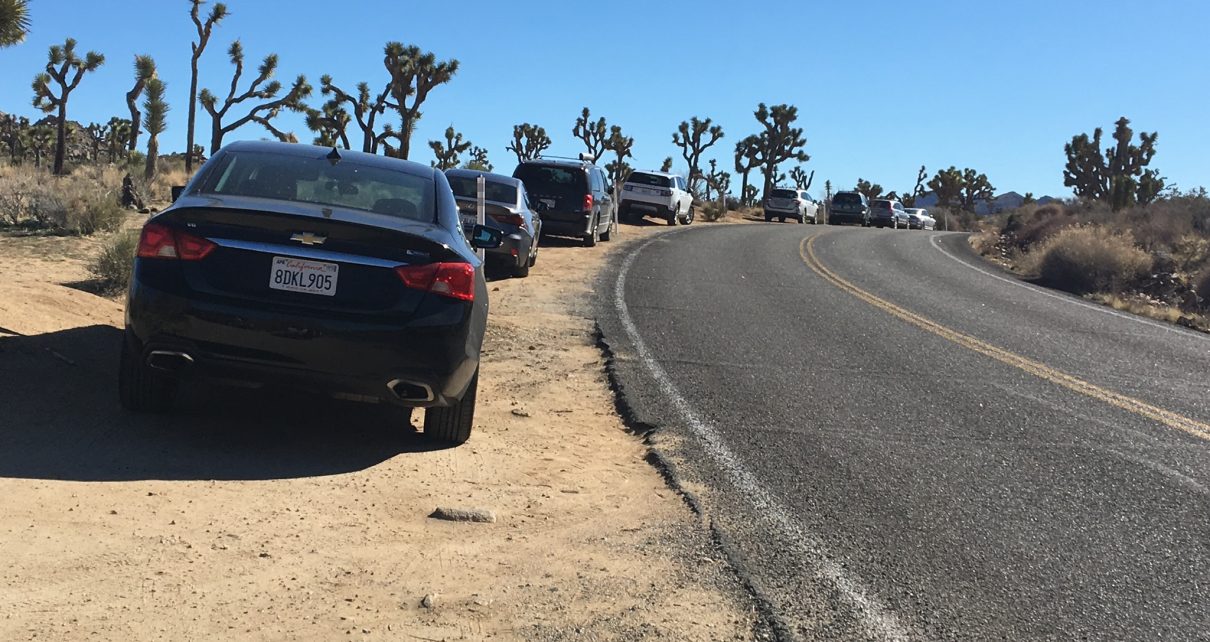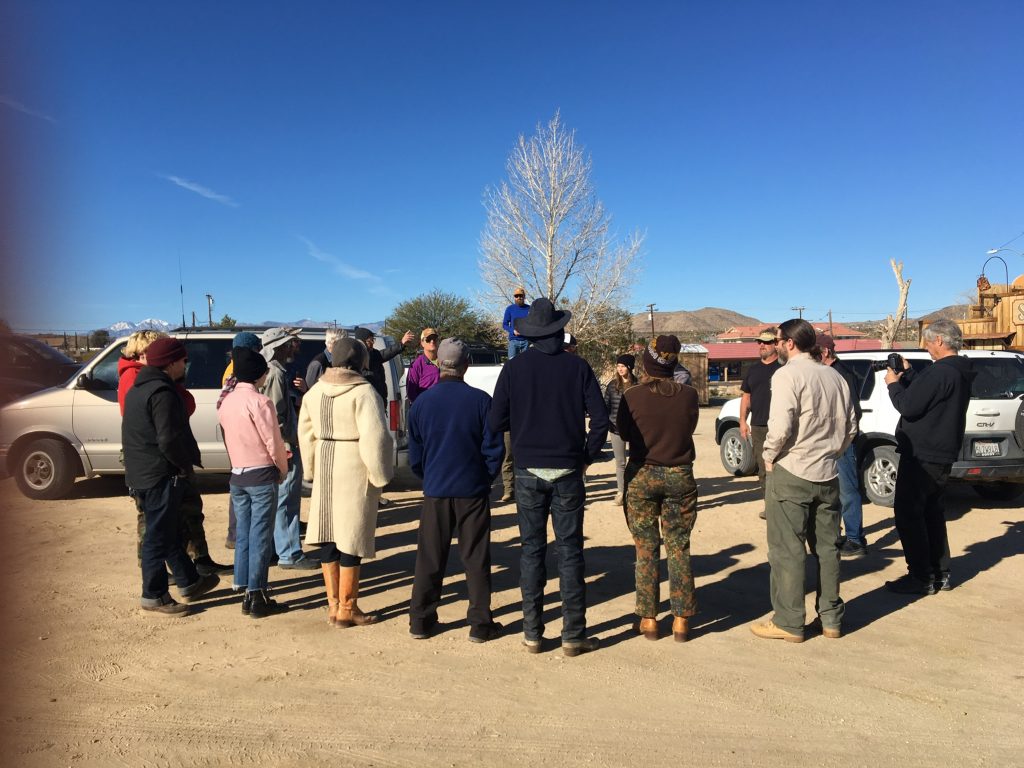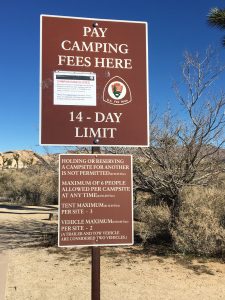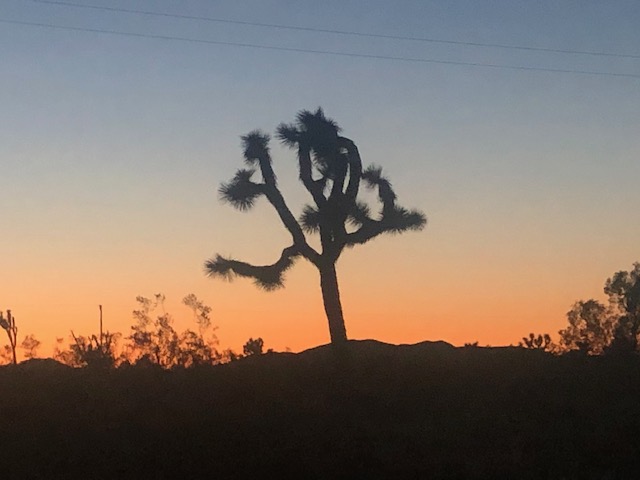
Joshua Tree Locals Pitch In When Government Shuts Down
Tree-huggers unite to keep beloved park running
By Laura Hauther, January 8, 2019 8:00 am

In the past few years Joshua Tree has become the belle of the hipster ball. With every travel article and celebrity selfie, the national park’s stock rises, bringing a flood of tourists with their much-needed dollars.
So what happens when a power struggle in D.C. shuts down all non-essential government services just as tens of thousands of visitors are headed out for their holiday vacations?
In 2013, during a 16-day government shut down, visitors were locked out, and much-needed tourist dollars were just lost. This time, a contingency plan developed by the National Park Service allowed the gates to stay open, but without paid staff to provide services.
For the locals, more than just tourist dollars are at stake; they’re fiercely protective and proud of the natural treasure in their backyard.

So when the feds bailed during this ongoing government shutdown, the locals stepped up. Since the government officially shut down on December 22nd, volunteers have continuously stepped up to keep chaos at bay.
Although no one is sure how many tourist visited the park over the holiday period (since there are no rangers on duty to keep count) last year’s count for December was 284,398, with most of that number coming between Christmas and New Year’s Day.
Although some visitors might be happy to save camping fees and the $30 a carload entry fee, no fees also means amenities like the water filling stations and dump stations are closed. Joshua Tree National Park is losing an estimated $300,000-$400,000 a day in fees, according to non-profit group Friends of Joshua Tree National Park.
And if not for the volunteers, the toilets would not be cleaned and stocked. On December 31, the park shut down Black Rock and Indian Cove camp sites for overnight stays and any access to Lost Horse Mine. Long-abandoned buildings and mining equipment still survive at Lost Horse, creating a temptation for curious tourists or treasure hunters. The closure was due to “illegal activity,” according to the Desert Sun. A small crew of rangers is still monitoring this kind of activity in the park, trying to minimize irreparable damage by people driving off-road, taking plants and rocks, or stealing parts of historic structures.
Locals are doing their best to pick up the slack. When the Joshua Tree Visitor’s Center shut down, the store across the street, Coyote Corner, took on some of its duties, stocking the free park maps the center usually carries and renting portapotties for the harried and confused tourists.
The store’s employees double as park envoys, answering questions and troubleshooting for visitors for hours on end. And the tourists are showing their support for the volunteer efforts; when the store put out a donation jar for the non-profit group Friends of Joshua Tree, they made $266 in one day.
Christine Pfranger, 49, co-owner of the store along with her husband, told the California Globe that despite all the extra work, she’s glad the park is open during this shut down, given what it means for the community’s economy. “We would be suffering if the park were closed but I do worry about our beautiful park suffering.”
To ensure that doesn’t happen, her store has also become the center for the volunteers determined to keep the impact of thousands of tourists to a minimum.
Seth Zaharias of Cliffhanger Guides, next to Coyote Corner, has taken the lead on organizing the random group of volunteers that show up every morning at 10 a.m. in front of the store. Seth and a few others have been monitoring the park so they can direct help where it’s most needed.
Zaharias told the California Globe that despite the difficult situation, the volunteers are making sure the park is maintained. “This park is doing very well. We’re not seeing the kind of problems that keep getting reported.”
At the height of the holiday rush, volunteers were stocking over 500 rolls of toilet paper throughout the park and spent hours cleaning the toilets and hauling out trash. Local hotels and AirBnb’s were asked to help out by educating their guests about the situation and providing them with extra toilet paper and trash bags if they were planning a trip into the park.
Now that the holiday rush is mostly over, the group sent to the popular Hidden Valley camp site found the vault toilets were still clean and well-stocked from the last group’s visit and the trash on site minimal. The trash vaults and dumpsters were not overflowing except for a few glass bottles left on top of the glass recycling container.
Volunteer Ava Dougherty, 13, a frequent visitor to the area from Los Angeles, said she came out this cold January morning because “we have to keep [the park] nice and trash-free and we’re coming together as a community to keep it that way.”
Local hotel owner and fellow volunteer Susan Burnett, 55, added: “I see a lot of people in the community on the local Facebook page saying the sky is falling, the park is getting destroyed, nothings ever going to be the same…I don’t think any of those people have come into the park. People for the most part are being very respectful.”
Those same fears are echoed by several news outlets. A recent Los Angeles Times Facebook post said the partial shutdown was creating a “grim picture” and claimed that Joshua Tree and Yosemite are being “trashed.”
David Lamfrom, director of the California Desert and National Wildlife Programs of the National Parks Conservation Association, told CNN the problems caused by unsupervised park use aren’t always obvious:
“People are walking off trails, bringing their dogs,” he said. “People are trampling and destroying the things they want to preserve without knowing it.”
As the shutdown enters its 17th day, the strain on parks throughout the country pushed officials to take the extraordinary step of using entrance fee funds to pay for basic park maintenance and monitoring during the shutdown. These funds are usually directed toward future projects and visitor services.
National Park Service Deputy Director P. Daniel Smith issued a statement Sunday explaining the move to protect both the parks and visitors.
“Thanks to the strong relationships that many national parks have built with partners across the country, a number of states, private concession companies, and park nonprofit groups have stepped up to provide over two million dollars’ worth of donations and in-kind services to help over forty parks continue to provide key services for visitors.
As the lapse in appropriations continues, it has become clear that highly visited parks with limited staff have urgent needs that cannot be addressed solely through the generosity of our partners.”
Hundreds of park employees will be able to return to work as a result of this new policy.




